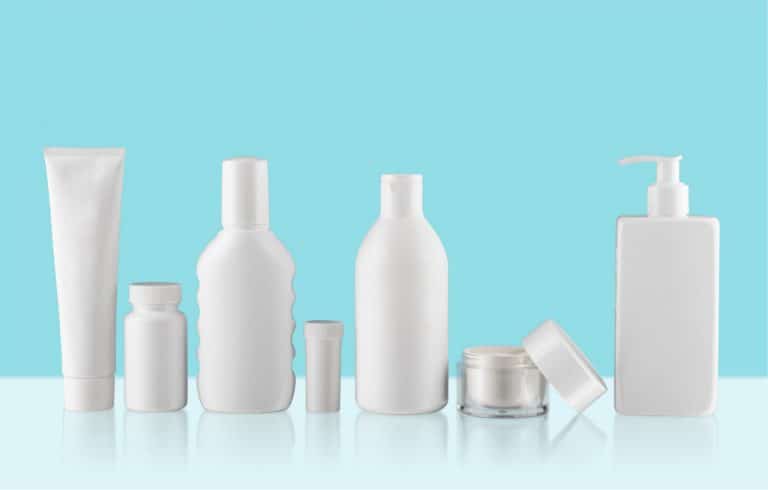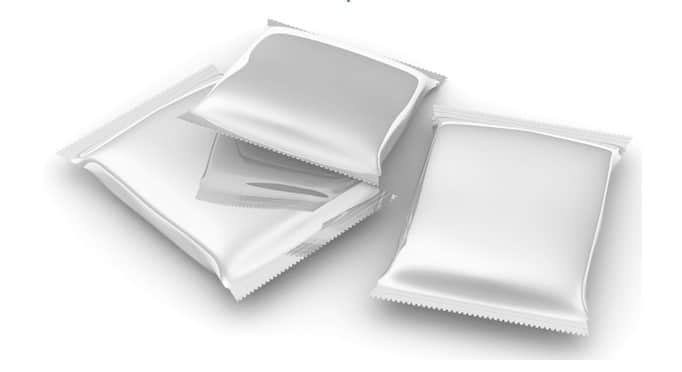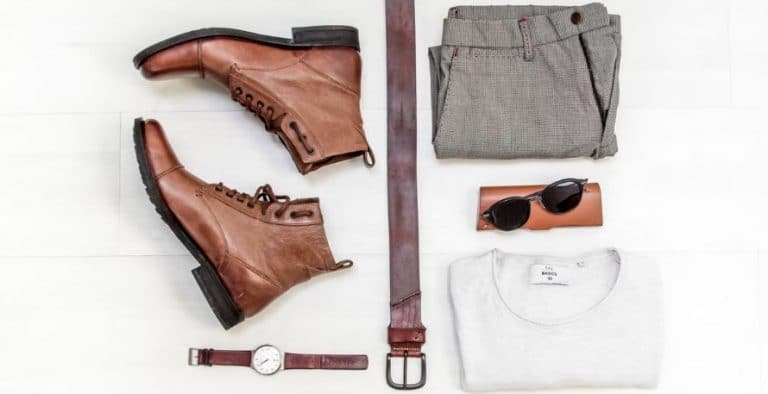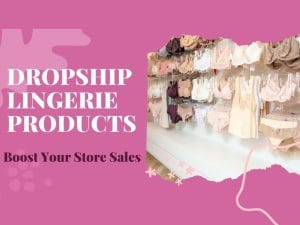Starting a private label business can be profitable provided you know where to find the best private label products. And if you can brand and market the products well, profits are guaranteed.

With the online marketplace flooded with generic products, sourcing private label products from the manufacturers and branding them would make your brand stand out. The entire process is simple.
Especially, if you partner with a good product sourcing agent with experience in handling private label products and branding.
This business model best suits online sellers engaging in dropshipping and wholesale product labelling business. This fact is influenced by their ability to make bulk orders.
Since those selling private label products have greater control over the branding and pricing process, scaling their business is faster and easy.
This article will help you understand how private label business works, how to find private label products to sell, how to brand and market your products online.
Table of Contents
ToggleWhat is Private Label?
If orders products without any label or logo on the product or packaging from a manufacturer and then brands them before selling, that’s private label. Private labeling is the manufacturing of products to sell to another company that will brand and sell to end-users.
While most of the technical products are normally sold under the manufacturer’s brand name and logo, there are many private label products you can sell.
Besides intangible products, examples of physical private label products you can resell include beauty, fashion and clothing, water bottles, and phone accessories.
Since manufacturers rarely sell their products directly to consumers, those reselling online as individuals or on eBay, Amazon and other online marketplaces have the opportunity to do private labeling.

Private Label Product Definition
Private label products are defined as products manufactured by a third-party company and sold by a retailer under its name and logo.
In most instances, the reseller dictates the branding/label, packaging and logo to be used on the product. The manufacturer may label and deliver to the store as instructed or many manufacturers and deliver to be labeled by the reseller.
Private label products also called store brand products are sold by the manufacturer at a lower price compared to their counterparts. These products are not limited to online stores. If you operate from a brick and mortar store, this may be a chance to promote your brand. Ensure most of the products are private label products.
Costco, Amazon, Walmart and Target are among the world’s biggest brands making a fortune by selling private label products.
Private Label VS White Label
Private label vs. white label are two confusing terms often used interchangeably. While in private label the retailer dictates the specifics of the product, in white label the specifics of the products are determined by the manufacturer.
Another difference is private label products are normally sold to one retailer while in white label the product is sold to any retailer who then customizes the item to meet each ones branding specifications.
White labeling is a bit more competitive since one product is sold to many different retailers. The product description is the same. Only the retailer’s branding distinguishes them.
Advantages of Private Label
From the private label definition, it’s clear the retailer has a monopoly. Whereas it’s likely to be tricked to order private label products that don’t rhyme with customers, with good marketing strategies the retailer stand a better chance to sell more.
What advantages do you enjoy as a private label?
1 - Price control
Private labels have total control over their private label product’s pricing. They know all the costs of production, logistics and marketing. Whichever price tag they place on their products is solely their discretion.
By having control over pricing, the amount of profit to make per product is their choice.
2 - Less competition
Store brands are unique in every sense – ingredients, packaging, brand name and logo. To the advantage of the private labels, the products can be found in their stores only. The competition they encounter is from alternative products, which is easy to overcome with a comprehensive marketing plan.
Private labels enjoy an exclusive market thus standing out from pricing competition. Generic products already flooded on online marketplaces are never a threat to private label products.
3 - Easy marketing
Based on the uniqueness of a private label product, it’s easier to have a captivating and engaging story on social media about the products. Leveraging the opportunities to have unique photos and create videos on the attributes of the products makes it easy to market private label products.
Private labels have higher chances of building loyalty over their products compared to white labels. The more ‘you market the products and attract repeat customers, the more you build loyal customers around them.
4 – Control over production
The number of products to be produced and when to manufacture is a duty left to the private labels only. They finance the production of their private label lines and the authority to halt the production. This further gives them the advantage of eliminating issues of dead stock in their stores.
As a private label, you have the power to order for faster production or increase the items in production in case of increased demand.
5 - Custom branding design
Private labels have the advantage of developing custom branding designs thus placing their store brands at a competitive advantage. Through branding, your products will be unique thus attracting a clientele around them.
Whether it’s the packaging design or the product design, private labels have total control over it.
Disadvantages of Private Labels
Every business involves risk-taking. Dropshipper, wholesalers, online shops and even brick and mortar stores face challenges with private label products. To place an order from a manufacturer, the costs are high and once you’ve created a mutual work relationship, overreliance creeps in.
Suppose the machines break down during peak season and repair takes time?
Here are the risks of private labels:
1 – Overreliance or dependency
More often, private labels sign binding contracts with their manufacturers or suppliers. This commits their production to one company until the contract expires – the result is overreliance. Machines are subject to tear and wear and the breakdown can happen unexpectedly.
Delays in production during such accidents can result in losses as the private label has no other manufacturer to fill the gap immediately.
2 – Individual liability
Any act of omission or commission arising from the private label’s products squarely falls on him/her. If you become a private label, you should at all times be prepared to take any risk occasioned by your product- as the sole owner.
In case of damages and theft, you’ll have nobody to share the damages with. The worse arises when you’re dealing with consumer goods and skincare products. You’ll bear the costs of allergies and side effects caused by the private label products.
Legal actions from trade regulations, trademarks, and safety risks are all met by the private label alone.
3 – Barriers of market entry
Unless it’s a technical product, barriers to entry will always exist. However unique the store brands/ branding may be, there is a well-established alternative product already in the market.
To overcome market entry barriers, a strategic marketing mix is needed and may be costly to breakthrough.
The same challenges are experienced when building loyal customers. As the brand owner, you’ve to explicitly show the reasons why a customer should leave his/her preferred brand to join your brand.

How To Start a Profitable Private Label Business
Despite the few disadvantages linked to private label business, many positive reasons should make you start one today. Would you imagine introducing a new brand and in a few months the product goes viral?
With statistics indicating a steady private label products growth year after year, and store brands manufacturers filling the gap, private labels’ future is bright.
Follow these steps to start your own private label business:
Step 1: Draw your private label business plan
This step may add a little cost which is justifiable anyway. This will help you realign your private label business plan with the estimated budget. Remember, to start a private labeling business will cost you between $1,000 -$1,500 – private label budget for small businesses.
Among the private labeling costs to include in this budget are manufacturing, logistics, product acquisition, marketing, branding and licenses. To have a workable plan, research is needed to evaluate all private label costs.
When budgeting for a private labeling business, it’s crucial to include the costs associated with business registration and formation. For instance LLC structure, these costs vary by state depending on where you choose to form an LLC. For example, forming an LLC in Wyoming costs $100, while in New York, the registration fee is $200, with additional costs for mandatory publication requirements.
Step 2: Research for a niche market
The term “research” is used intentionally. Market saturation and dominance by certain brands are among the few market entry barriers you need to overcome from the start. Some locally produced products may also have unfair competition.
Finding private label products that fill a certain market gap will reduce competition and have smooth market entry.
Based on your preferred target market, research for products people claims to be inferior and plan for a better product. Or, research for products that are often out of stock and you can offer an alternative.
Among the niches you’ll likely find private label products to dropship, sale online or on Amazon are:
- Beauty and cosmetic products
- Pet foods
- Cereal foods
- Nutritional supplements
- Gadgets and electronics
- CBD oils
- Fashion and clothing
This being a critical stage, you also have to research:
- Target market
- Available alternative products and their competitiveness
Step 3: Search for the best private label manufacturer for your products
Sourcing the best private label manufacturer who would the product of your dream isn’t a challenge to wish away. To find a good manufacturer you should visit online private label manufacturing directories.
Another way is to use keywords like “private label manufacturer”, “private label” or be specific to your niche product and type “hair products private label manufacturer”.
You can also use online forums, local connections and Reddit.
After you’ve settled on one, make a direct call or send an email to enquire about the company’s manufacturing process and costs.
Don’t forget to ask for samples before placing your first order. Also, start with a small order and if sales catch up.
Learn More about find private label factory’s site
Step 4: Brand your products
Hoping you’ve created your brand and designed a logo, you have the options to again source branding services from the manufacturer or hire a third party.
To avoid trademark and patent rights issues, do thorough research on your brand name and logo before using them on your products.
A nice packaging, branding and logo design will contribute to the success of your product. Do the best or hire a graphic designer.
Learn More about Branded Dropshipping
Step 5: Launch your private label business, market products
With the products now ready to publish on your online shop or shelf on your brick and mortar store, it’s advisable to launch your business on a high note.
Being a new product, you need to organize effective marketing activities and a well-planned product launch campaign.

4 Tips to position Your Private Label for Success
Before launching your private label brand, you have to strategically position it to break all market entry barriers. With almost every market segment saturated with different product lines, uniqueness and branding will play a pivotal role in placing your store brand in an elevated position.
Here are tips to take into account to run a successful private label brand
Tip 1: Capitalize on online marketing
How customers used to find their ideal product has changed and everybody has gone online. Instagram, Twitter, Facebook, LinkedIn and Tiktok have become a marketing hub to many entrepreneurs.
After designing your logo, packaging and branding, you can opt to share with the relevant audience and take note of the comments.
Almost every social media platform has an interactive feature that you can use to launch your private label products. Use every digital marketing strategy at your disposal to create awareness of your products before releasing them to the market.
Initiate and encourage social media discussions about your private label products, branding and packaging design.
Tip 2: Focus on product uniqueness and value
What will make customers used to a competitor’s product turn to your product? It takes a lot to convince a customer to buy a new product unless it’s generic clothing or a water bottle. Ensure the branding describes the values of the product.
Cost is the second factor your potential customers will consider. First, hook them with value and since most private label brands are cheaper, they’ll fall into your trap. When designing and developing your product, try to add ingredients or components that will add value to your products.
As you brand your product, let the product name and description take dominance over the logo.
Tip 3: Be Flexible
Don’t stop after you’ve done the first-time branding. After collecting all the comments about the branding, packaging, quality and customer experience, do some tweaking to suit your customer needs.
Enhance the quality, taste and value of your private label products while keeping the pricing competitive. And since you’ve calculated your costs, remember to offer discounts but go too deep. Otherwise, the store brands will be perceived as inferior.
Tip 4: Be consistent on quality and supply
Private labels have control over production and the supply chain. Many are tempted to minimize the costs of production by reducing the expensive raw materials. The first factor customers will consider before buying your product is value. Does the store brand satisfy customers’ needs?
Keep improving value and build loyalty around it through consistent marketing. Don’t allow gaps to creep in due to stockouts. Monitor your sales and ensure a steady supply from your chosen third party manufacturer.
Examples of the Most Successful Private Label Products
If you’ve not decided on which private label products to sell or dropship, here are some of the most successful private label products to consider:

• Fashion, clothing and beauty
In this niche, big companies have settled for clothing, shoes and jewelry as their main private label products. Whether it’s children’s clothes, women’s shoes, men’s jackets or expensive necklaces these ought to be your first categories to consider.
Beauty products have at all times been in high demand. With a little research, you can come up with different beauty private label products.
• Home decor
Almost every online marketplace has home décor products sold as store brands. Why not you? Among the items, you can sell as private label products include picture frames, art candles, vases, curtains, artificial flowers and carpets.
The demand for home décor products has been growing steadily over the past years just as real estate has been growing in leaps and bounds. There is a real market in this niche to exploit.

• Health supplements and essential oils
It’s a fact essential oils have become the “next big thing” to the majority across the world. Due to their impact on hums health and natural well-being, their demand is high.
And with over 90 different essential oils already available, you have the opportunity to select the most in-demand oils for your private label business.
To your surprise, the demand for health supplements is expected to grow at a CAGR of 8.9% from 2022 to 2030. Isn’t it a worthy market to venture in?
• Electronics, phone accessories and gadgets
The young and old are every day searching for USB-C power adapters, smartphone chargers, wireless phone charging units and glass protectors. Sub hoofers and tracking devices are also worth selling as private label products.
With technology emerging every day, one to two days are enough to know the best electronic private label products to sell in your store.
Conclusion
Now that you know what is a private label product and how to start a successful private label business, why not start one today?
With the list of the most successful private label products and expert tips to position your private label for growth explained above, it’s possible to grow your business and make huge profits.
One most important thing you should always keep in mind is who to source, brand and dropship your private label brands to your store or customers without breaking your bank.
Fulfillbot offers all private label services under one roof making it easier to monitor every activity.




